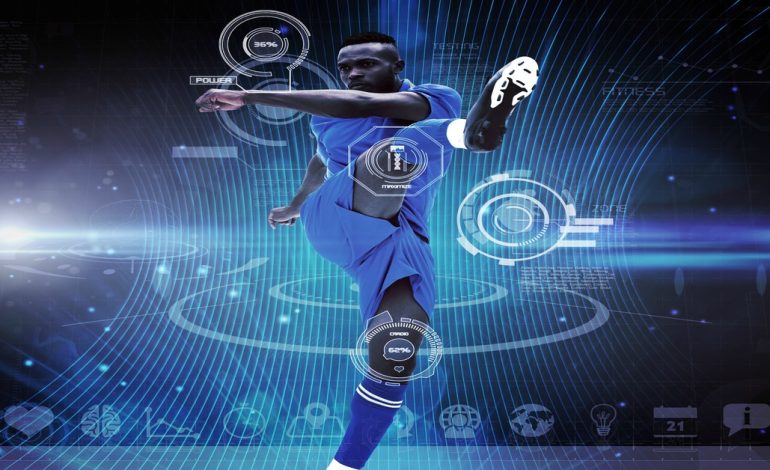
How Is Technology Transforming the Future of Sports & Entertainment?
In the modern digital world where things are rapidly changing, technology has come out to be a force behind the way fans interact, athletes perform, and organizations conduct their operations. Starting with virtual reality broadcasts, AI-based analytics tech has turned sports into a spectacle of data-driven, interactive, and immersive experiences. No matter whether you are already a fan or simply a casual viewer, it is all too easy to see that these innovations and how they operate are profoundly impacting the sports entertainment industry.
1. Revolutionizing Fan Engagement
With the advent of technology in sports entertainment, the manner in which fans get to enjoy games has radically changed. Fast Wi-FI has been installed in stadiums and arenas that enable the audience to stream replays immediately, share the highlights with others on social media, and interact with the real-time statistics. The mobile applications enable the fans to vote on the plays, monitor the performance of the players and even get access to behind-the-scenes information.
New possibilities of engagement have also been developed with the help of Augmented Reality (AR). Think about when you are at a basketball game and scan a QR code and immediately see player statistics or highlight video on your screen. These experiences bring the fans close to the action, and enhance their emotional attachment to their favorite teams.
2. Improving Athlete Performance
The other significant advantage of technology in sports entertainment is that it enhances health and athletic performance. Fit gadgets such as fitness bracelets, GPS assistants, and smart clothes, among others, gather rich biometric information, including heart rate, speed, and energy output. This information is analyzed by coaches and sports scientists to optimize the process of training, prevent injuries, and maximize the results of the performance.
Video analytics made on AI are also game-changers. Artificial intelligence-based platforms can analyze the thousands of hours spent playing the games to derive patterns, weaknesses and tactical knowledge. This not only enhances the efficiency of players, but it also enhances the level of competition as well.
3. Transforming Broadcasting and Viewing Experiences
Technology in sports entertainment has totally changed the way sports are viewed and transmitted to the audience. Traditional television is transformed into an ecosystem of interactive live streaming, multi-angle cameras, and a virtual view of reality. The fans are now able to select the camera angle that they like or even feel like they are standing next to the athletes.
Also, 5G technology guarantees a better and quicker streaming process with minimal delays, allowing sporting events around the world to be accessible more than ever. AI is also being used to help broadcasters automate commentary, create highlights, and provide personal recommendations of content to the audience – improving the overall experience of viewers.
4. The Role of Esports and Virtual Competitions
The rapid rise of esports is one of the most promising changes in the field of sports entertainment in the field of technology. Professional sports Competitive gaming has become a billion-dollar business with international competitions, sponsor agreements and large crowds.
Such games as FIFA, NBA 2K, Formula 1 e racing are blending the physical and virtual sports. Motion sensors and virtual reality headsets are used to create an experience that is close to competition in real life. The Esports events are currently being broadcast to millions of people across the world and offering the same excitement and fan loyalty as other sports.
5. Information Processing and Decision-Taking
Technology-based sports entertainment data is transforming the way teams make decisions on and off the field. High-tech data analytics platforms enable the teams to forecast the performance of their players, evaluate their rivals, and optimize game tactics. To the management, the data also helps in scouting, negotiating contracts, as well as engaging fans.
In addition, sports organizations can use fan data, collected through ticket purchases, mobile applications, and online communication, to develop individual marketing campaigns. The result of this is increased fan loyalty and better business models.
6. Smart Stadiums and Sustainability
Technology in sports entertainment has led to modern stadiums and arenas being designed in an eco-friendly style and using energy-efficient technologies. Intelligent lighting systems, solar energy panels, and automated waste management systems help in minimizing carbon footprints.
Certain establishments go as far as implementing AI-based crowd management systems that can track the traffic movement and keep people safe. Such innovations not only make sporting conditions greener, but they also increase the comfort and ease of the fan experience.
7. The Future Ahead
The technological future of sporting entertainment is unlimited. The future of NFTs, with the addition of AI, blockchain, and virtual reality, sees fans purchasing NFTs associated with the memorable moments in sports, participating in virtual matches, or even communicating directly with players using the metaverse platform.
The future of technology and athletes and fans is only to evolve further as innovation evolves and makes sports more engaging, interactive and connected to the world. The main issue will be how to create a balance between technology and authenticity so that, on the one hand, the experience will also be smarter, but on the other hand, it will never stop being passionate about sports and what made them so special.
Final Thoughts
Technology in sports entertainment has been an influential factor that has defined the future and present of the industry. It is changing the fan experiences, performance of the players and is revolutionizing our consumption and interaction with sports. With these technologies developing, there is one thing that is definite, and that is that the relationship between sports and technologies will get closer and will cause a new wave of excitement and innovation in the world.


